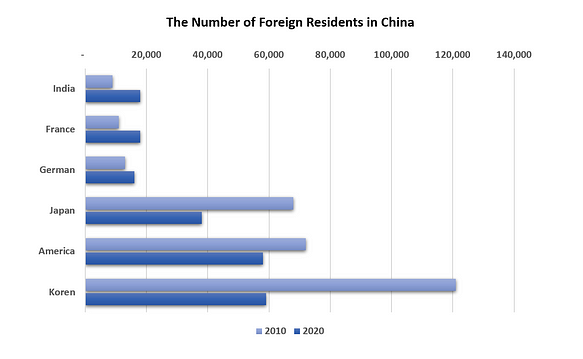
The news of foreign companies relocating out of China has been making headlines recently, but the situation may not be as widespread as it seems. German companies invested a record 11.5 billion euros ($12.6 billion) in China last year, indicating that some foreign companies are still keen on expanding their presence there. However, China must acknowledge that such relocations will have far-reaching effects, particularly in the electronics and semiconductor industries. To address this issue effectively, the country should seize many opportunities to minimize the adverse effects.

Facing the Reality
China must first understand their reasons for mitigating the impact of foreign company relocations. Most multinational corporations want to stay in China, as the country offers an enormous market, a vast pool of engineering talent, abundant capital, and active demand. It also provides greater efficiency than its rivals. However, some companies may be forced to relocate due to external pressures such as political sanctions and heavy tariffs.
Bridging the Gaps
Although Southeast Asia and Mexico lag far behind China regarding the quality of their infrastructure, electricity supply, and labour relations, recent developments suggest that these gaps can be bridged. For example, in recent years, India has invested heavily in railway construction to improve its train system. Vietnam has also been constructing numerous power plants to boost its electricity supply. Thus, unfavourable conditions can be resolved, as China did during its economic reform and opening-up period.
Maintaining Connections
Although some foreign companies are shifting operations out of China, most opt to maintain connections rather than sever ties. Large factories have adopted a “China+1” approach, which means preserving adequate capacity in the country to serve the Chinese market while relocating their other operations. Meanwhile, those with a limited market share in China might consider withdrawing completely. Keeping part of their operations and supply chains in China gives companies greater flexibility in the future. They can sustain a presence in the market and quickly expand if needed in the future.
Opportunities for Growth
Despite the challenges posed by foreign company relocations, there are still opportunities for growth in China. For example, the country can promote innovation and technology to attract foreign investment. It can also promote financial inclusion and support the development of digital banking to reach underserved populations. By doing so, China can expand its reach and serve new customers, mitigating the impact of foreign company relocations.
Backlinks
“美媒:在华外企频传遭突击搜查 五天近32亿美元外资撤离”, Zaobao, 29 Apr 2023, https://www.zaobao.com.sg/realtime/china/story20230429-1388709
“Opinion: How to Minimize the Damage When Foreign Firms Leave China”, Caixin Global, 01 May 2023, https://www.caixinglobal.com/2023-05-01/opinion-how-to-minimize-the-damage-when-foreign-firms-leave-china-102041183.html
“Foreign tech companies moving out of China, can India seize the opportunity?”, Bizz Buzz, 5 Jan 2023, https://www.bizzbuzz.news/eco-buzz/foreign-tech-companies-moving-out-of-china-can-india-seize-the-opportunity-1189506